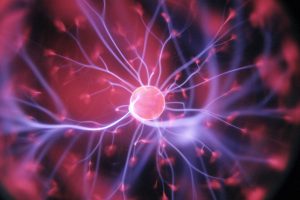Breaking The Cycle: Therapy Help in Sex Addiction Recovery
Sex addiction is characterised by compulsive sexual behaviour that can negatively impact an individual’s emotional and physical well-being. The behaviour can range from excessive use of pornography to promiscuous sexual behaviour to frequent masturbation.
Sex addiction is a relatively new area of research, and it is not recognised as a standalone disorder by the American Psychiatric Association. However, it is considered a behavioural addiction and included in the International Classification of Diseases (ICD-11) as a compulsive sexual behaviour disorder.
The prevalence of sex addiction is not well understood. Still, it is estimated that between 3% and 6% of the population may be affected and not linked to any specific demographic, impacting individuals of all ages, genders, and sexual orientations.
The impact of sex addiction on an individual’s emotional and physical well-being can be significant. It can lead to shame, guilt, and low self-esteem, negatively impacting relationships, work, and overall quality of life. It can also lead to physical consequences such as sexually transmitted infections and unwanted pregnancies.
Understanding the Causes of Sex Addiction
A combination of biological, psychological and social factors can cause sex addiction.

Biological factors: Research suggests that sex addiction may be related to abnormal activity in the brain’s reward centres, which release pleasurable chemicals such as dopamine. This abnormal activity can lead to compulsive sexual behaviour as individuals seek to experience the pleasurable feelings associated with sex. Additionally, some studies have found that individuals with sex addiction have lower serotonin levels, and this neurotransmitter regulates mood, which may contribute to compulsive behaviour.
Psychological factors: Trauma, such as physical, emotional, or sexual abuse, can lead to the development of sex addiction. Individuals with co-occurring mental health conditions such as anxiety, depression, or obsessive-compulsive disorder may be at an increased risk of developing sex addiction.
Social and cultural factors: Societal and cultural influences can play a role in developing sex addiction. For example, exposure to sexually explicit material at a young age or societal pressure to conform to certain sexual norms can contribute to the development of compulsive sexual behaviour. Additionally, easy access to pornography and the anonymity of online sexual encounters can make it easier for individuals to engage in compulsive sexual behaviour.
Psychosexual Therapy in sex addiction recovery
Psychosexual Therapy can be a valuable tool in sex addiction recovery. Sex addiction involves a complex interplay of emotional, psychological, and social factors that can contribute to problematic and compulsive sexual behaviours. Psychosexual Therapy can help individuals with sex addiction understand the underlying factors contributing to their addiction and develop healthy coping mechanisms to manage their behaviour.
The Therapy can help individuals identify and manage emotional triggers contributing to their addictive behaviour. It can also help individuals to develop a better understanding of their sexual desires and preferences and to explore healthy ways of fulfilling those desires. Psychosexual Therapy can also help individuals develop a healthy relationship with sex and intimacy, building self-esteem and promoting self-acceptance.
The Therapy may include individual or group Therapy, cognitive-behavioural Therapy, or psychodynamic Therapy. It may also include specific techniques or exercises to help individuals develop better communication skills, improve their sexual health, and enhance their overall well-being.
Overall, psychosexual Therapy can be an effective tool in sex addiction recovery, helping individuals to gain insight into their behaviour, develop healthy coping mechanisms, and build a fulfilling life in recovery.
More Therapy approaches for sex addiction recovery
Treatment for sex addiction typically involves a combination of therapy and support groups. The type of Therapy most effective for individuals will depend on their specific needs and circumstances.
Transpersonal Therapy focuses on the individual’s experiences. It aims to help them understand their addiction’s underlying reasons. It can benefit individuals who have experienced trauma or co-occurring mental health conditions.
Behavioural Therapy is based on the idea that our behaviour is learned and can be changed. It involves identifying and changing the patterns of behaviour that contribute to addiction. This Therapy can help individuals develop healthier coping mechanisms and improve their overall well-being.
Medication: Certain medications, such as antidepressants and anti-anxiety medication, can help to reduce symptoms of sex addiction. Medications can be combined with Therapy to help individuals manage their symptoms and improve their overall well-being.
Support groups: Support groups provide a safe and supportive environment for individuals to share their experiences and receive support from others going through similar experiences. They can benefit individuals struggling to maintain recovery and needing additional support.
Mindfulness and relaxation techniquesRelaxation Techniques in CBT Cognitive Behavioural Therapy (CBT) offers approaches to support individuals in managing their stress and anxiety. Relaxation... More about this therapy: Mindfulness and relaxation techniques can help individuals to reduce stress and improve emotional regulation. This can be particularly helpful for individuals struggling with compulsive sexual behaviour.
Integrative Therapy: Integrative Therapy is a holistic approach that combines different types of Therapy to address the individual’s specific needs and concerns. This Therapy can benefit individuals who have experienced trauma or co-occurring mental health conditions.
In summary, sex addiction recovery can involve Therapy, medication, support groups, mindfulness and relaxation techniques, and integrative Therapy. The best Therapy for sex addiction recovery is often the one that addresses the specific needs and concerns of the individual.
Transpersonal Therapy, behavioural Therapy, medication, support groups, mindfulness and relaxation techniques, and integrative Therapy are all effective and helpful approaches. They can be used in sex addiction recovery.
The Importance of Seeking Professional Help
Sex addiction can significantly impact an individual’s emotional and physical well-being. Seeking professional help is an essential step in the recovery process.

Finding a therapist who specialises in sex addiction recovery: It is essential to find a therapist who has experience and expertise in treating sex addiction. A therapist specialising in sex addiction recovery will be able to provide a comprehensive treatment plan that addresses the underlying causes of the addiction and helps individuals manage the symptoms.
Additional resources: Recovering from sex addiction can be challenging. Still, many resources are available to help individuals on their journey to recovery. This can include support groups, online resources, and self-help books. Additionally, it is vital to have a robust support system, whether it is friends, family, or a therapist. It is also important to remember that recovery is a lifelong journey, and it is vital to continue to work on maintaining recovery even after Therapy ends.
- About the Author
- Latest Posts
Co-founder and director of Leone Centre, 20+ years of experience supporting people, and offering valuable knowledge through Couples Counselling and Individual Counselling. Before becoming a therapist, I worked in the financial sector.

Get Started Today
with Leone Centre

BOOK NOW

Call us
020 3930 1007

View our therapists
Find your match


